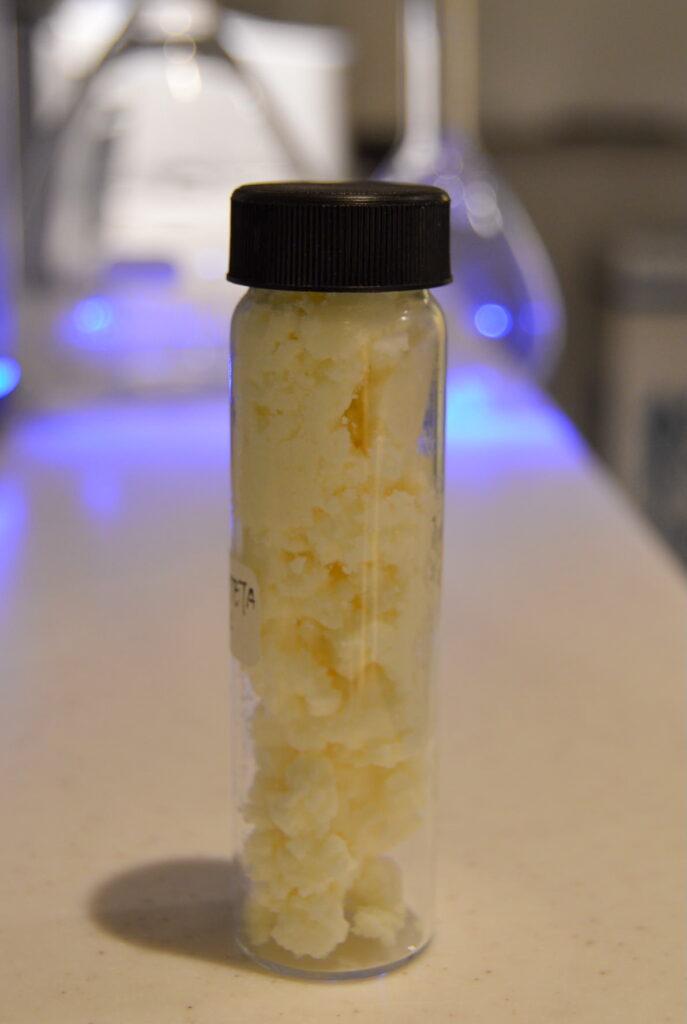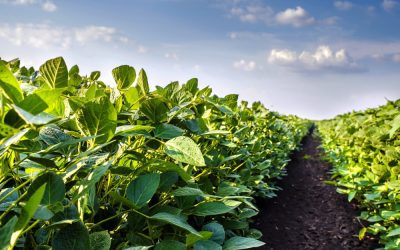Personal care products may feature soybean-based surfactants in future
By Katherine Melbert
Purdue University engineers Jeffrey Youngblood and Carlos Martinez have an opportunity to make waves in the personal care product sector. Through research funded by the Indiana Soybean Alliance (ISA), Youngblood and Martinez developed soy-based surfactants, which are derived from soybeans and offer a sustainable alternative to petroleum-based surfactants.

The team has explored various applications of soy-based materials, including phase change materials, surfactants and lubricants. Their research aims to create products with properties comparable to or better than petroleum-based products, while being more sustainable.
Surfactants are compounds that, when added to a liquid, reduce its surface tension, causing it to spread out and wet a surface. Petroleum-based surfactants can be found in most shampoos, conditioners and antimicrobial washes on the market.
Youngblood and Martinez, professors in the School of Materials Engineering, developed patent-pending soybean oil- and hydrogenated soybean oil-based cationic surfactants.
“There is a large push internationally to replace petroleum-based surfactants with bio-based ones, and soy provides a unique opportunity for this shift,” Martinez said. “If the system is economically viable, it can open up new revenue streams for farmers in Indiana.”
Soybeans are particularly valuable as a domestic, renewable resource. Soybeans are widely available, relatively affordable, and because they are farmed, not mined, considered better for the environment. Soy-based compounds also degrade more easily in the environment, unlike petroleum products, which take longer to break down.
“At the end of life, bio-based materials, like those from soy, degrade in ways that are more compatible with biological systems,” Youngblood said. “It’s not just about being sustainable from the start; it’s about how these materials behave at the end of their lifecycle.”
Beyond economic and environmental value, Youngblood and Martinez discovered the practicality and viability of soy-based surfactants to compete directly with commercial petroleum.
“What’s exciting is that soy-based materials can compete on properties” Youngblood affirms. “Whether it’s surface tension for surfactants or latent heat for phase change materials, they perform just as well as petroleum-based products.”
Products made with soy surfactants are considered premium, in which large manufacturing companies are increasingly interested. Next steps for Youngblood and Martinez include running more tests to prove commercial viability of soy-based surfactants.
“We envision licensing these products to companies that would then supply them to formulators,” the team said. “The real question is whether they can replace existing products like hair conditioners or soaps, and if we can prove they’re just as good—and potentially safer—then we have a viable product.”
Youngblood and Martinez applied for a research grant through ISA that has fueled the team’s innovation. “We’re incredibly grateful for the farmers’ support,” Martinez affirmed. Their investment has been critical in helping us get this research off the ground, and we hope this work will increase the value of soy products for them in the future.”
Youngblood added, “Farmer checkoff-funded research is important because it allows us to do things that frankly nobody else funds. ISA operates in a niche that nobody else really does.”
The research has the potential to transform the personal care and manufacturing industries, creating more sustainable options for consumers and reducing reliance on petroleum-based materials.
The patent-pending, soy-based innovations are available for development and commercialization through the Purdue Innovates Office of Technology Commercialization. Interested parties should contact Dipak Narula, lead technology development liaison, at dnarula@prf.org about track code 70130.
Posted: March 21, 2025
Category: Indiana Corn and Soybean Post - March 2025, ISA, News, Purdue University, Research



